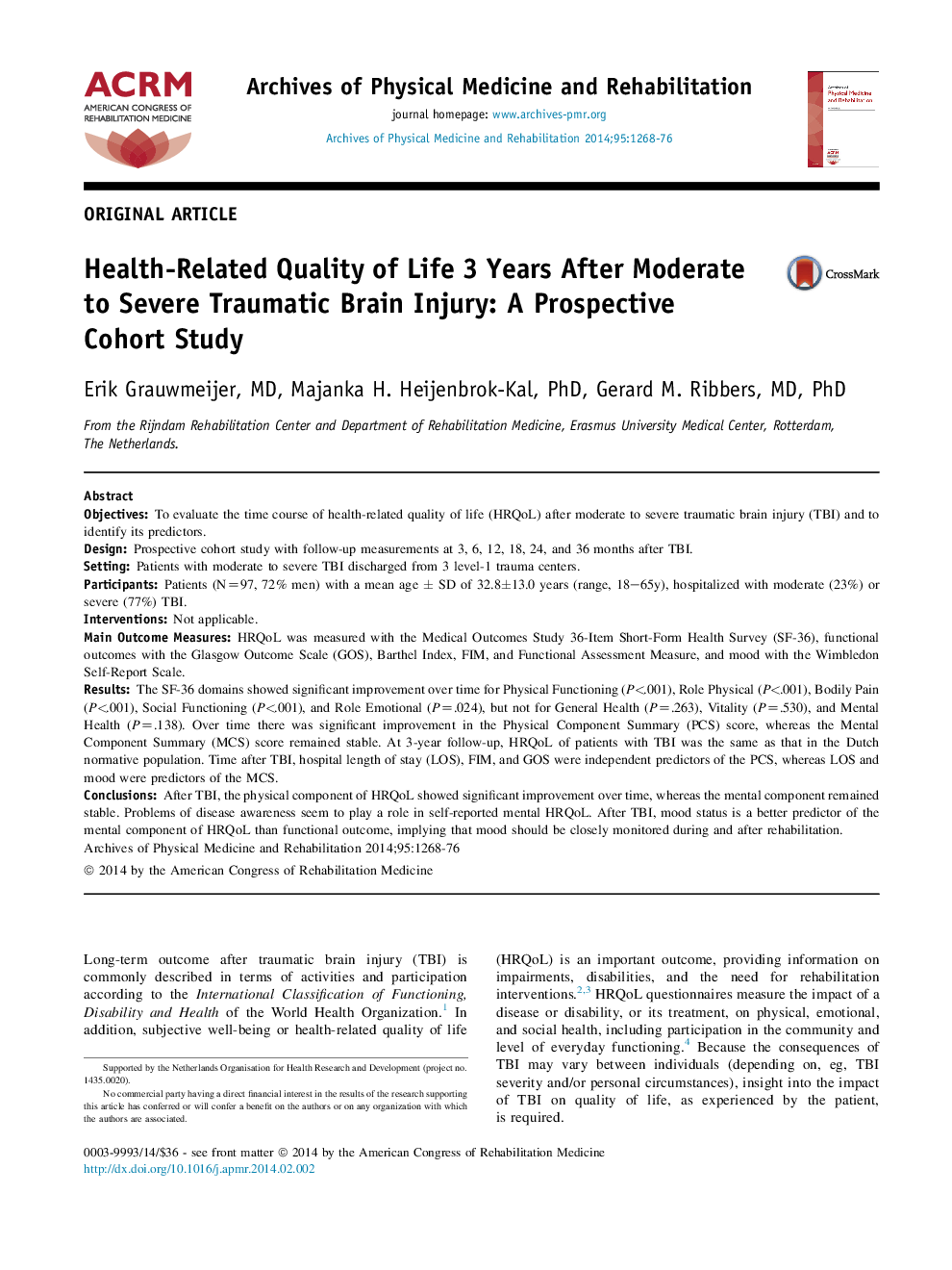| کد مقاله | کد نشریه | سال انتشار | مقاله انگلیسی | نسخه تمام متن |
|---|---|---|---|---|
| 3448716 | 1595695 | 2014 | 9 صفحه PDF | دانلود رایگان |
ObjectivesTo evaluate the time course of health-related quality of life (HRQoL) after moderate to severe traumatic brain injury (TBI) and to identify its predictors.DesignProspective cohort study with follow-up measurements at 3, 6, 12, 18, 24, and 36 months after TBI.SettingPatients with moderate to severe TBI discharged from 3 level-1 trauma centers.ParticipantsPatients (N=97, 72% men) with a mean age ± SD of 32.8±13.0 years (range, 18–65y), hospitalized with moderate (23%) or severe (77%) TBI.InterventionsNot applicable.Main Outcome MeasuresHRQoL was measured with the Medical Outcomes Study 36-Item Short-Form Health Survey (SF-36), functional outcomes with the Glasgow Outcome Scale (GOS), Barthel Index, FIM, and Functional Assessment Measure, and mood with the Wimbledon Self-Report Scale.ResultsThe SF-36 domains showed significant improvement over time for Physical Functioning (P<.001), Role Physical (P<.001), Bodily Pain (P<.001), Social Functioning (P<.001), and Role Emotional (P=.024), but not for General Health (P=.263), Vitality (P=.530), and Mental Health (P=.138). Over time there was significant improvement in the Physical Component Summary (PCS) score, whereas the Mental Component Summary (MCS) score remained stable. At 3-year follow-up, HRQoL of patients with TBI was the same as that in the Dutch normative population. Time after TBI, hospital length of stay (LOS), FIM, and GOS were independent predictors of the PCS, whereas LOS and mood were predictors of the MCS.ConclusionsAfter TBI, the physical component of HRQoL showed significant improvement over time, whereas the mental component remained stable. Problems of disease awareness seem to play a role in self-reported mental HRQoL. After TBI, mood status is a better predictor of the mental component of HRQoL than functional outcome, implying that mood should be closely monitored during and after rehabilitation.
Journal: Archives of Physical Medicine and Rehabilitation - Volume 95, Issue 7, July 2014, Pages 1268–1276
